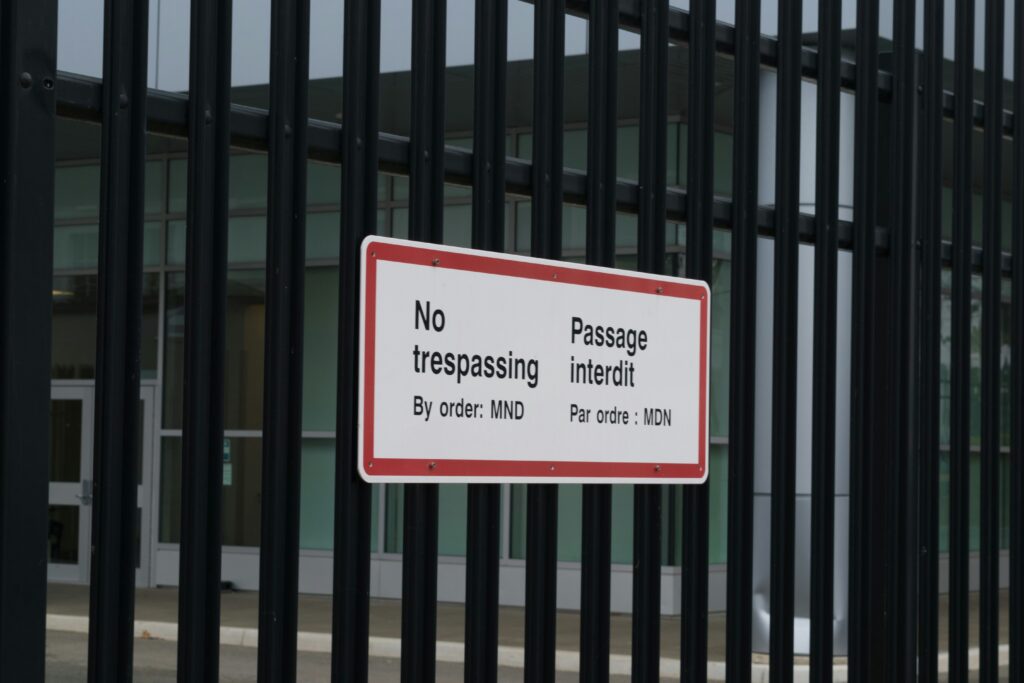Published On: 20th September 2025
Authored By: By: Misbah Sayyed
A.K.K. New Law Academy
Abstract
This article explores the Bharatiya Nyaya Sanhita (BNS), 2023, a transformative legal reform in India’s criminal justice system. The BNS, which replaces the Indian Penal Code (IPC), 1860, signifies a crucial shift from colonial legal principles to contemporary societal and legal needs. Key features of the BNS include the recognition of terrorism under general penal law, criminalization of mob lynching, repeal of sedition (IPC Section 124-A), and introduction of acts endangering national sovereignty, unity, and integrity of India (BNS Section 152). This article primarily focuses on how these changes will impact policing practices and criminal procedures.
Introduction
On July 1, 2024, a major transformation occurred in India’s criminal justice system with the enforcement of three new laws: the Bharatiya Nyaya Sanhita (BNS), Bharatiya Nagrik Suraksha Sanhita (BNSS), and Bharatiya Sakshya Adhiniyam (BSA). These comprehensive reforms aim to modernize India’s legal system by replacing colonial-era statutes that had long governed criminal law and procedure in the country.
The Bharatiya Nyaya Sanhita, 2023, takes the place of the Indian Penal Code, 1860, which was originally drafted under British rule by Thomas Babington Macaulay. Having been in effect for 160 years, the IPC had become inadequate for addressing contemporary forms of crime and delivering modern justice.
The BNS was created in response to the need for a legal framework that better reflects contemporary values, social complexity, and technological advancement. The new code adopts a victim-centric approach to justice, emphasizing reformative rather than purely punitive measures.
Understanding the Bharatiya Nyaya Sanhita, 2023
The Bharatiya Nyaya Sanhita, 2023, serves as substantive criminal law that defines which acts constitute offenses and provides corresponding punishments. While most provisions from the IPC remain within the scope of the BNS, certain sections—including Section 124-A (sedition), Section 377 (homosexuality), and Section 309 (attempt to suicide)—have been omitted or modified.
The BNS has successfully consolidated scattered legal provisions, reducing the total number from 511 sections in the IPC to 358 sections organized into 20 chapters. For instance, Chapter 5 specifically addresses offenses against women and children, demonstrating a more systematic approach to categorizing crimes.
A significant innovation in the BNS is its attempt to balance over-criminalization with decriminalization. To achieve this, the code introduces community service as a form of punishment under Section 4, aimed at rehabilitating and reforming first-time or minor offenders rather than simply punishing them.
New Provisions Introduced in the BNS, 2023
Terrorism
Section 113 of the BNS introduces a comprehensive definition of terrorism as acts intended to harm national integrity and security while creating widespread fear among citizens. Penalties range from life imprisonment to death, particularly when the offense results in loss of life, accompanied by substantial monetary fines.
Mob Lynching
The BNS explicitly criminalizes mob lynching, defined as group murder based on race, sex, or religion. The penalty for such offenses ranges from a minimum of seven years imprisonment to life imprisonment or death, depending on the circumstances.
Sedition Reform
Section 124-A of the IPC, which defined sedition, has been omitted from the BNS. The focus has shifted from ‘Rajdroh’ (offenses against the ruler) to ‘Deshdroh’ (offenses against the nation). Section 152 of the BNS now addresses “acts endangering sovereignty, unity, and integrity of India,” penalizing activities such as:
- Exciting or attempting to excite secession, armed rebellion, or subversive activities
- Encouraging separatist feelings or activities
- Endangering national sovereignty, unity, or integrity
These offenses may involve words, signs, electronic communication, or financial means.
Organized Crime
The BNS addresses organized crime comprehensively, including offenses such as kidnapping, extortion, contract killing, land grabbing, financial scams, and cybercrime carried out by crime syndicates. Under Section 111, attempting or committing organized crimes is punishable by:
- Death or life imprisonment and a fine of ₹10 lakh if it results in death
- Imprisonment between five years and life, with a fine of at least ₹5 lakh for other cases
Crimes Against Women and Children
Chapter 5 of the BNS consolidates laws addressing crimes against women and children, including sexual and domestic offenses. This systematic approach acknowledges the unique vulnerabilities of these groups and enables more coherent enforcement.
Impact on Police and Procedural Reforms
As substantive criminal law, the BNS indirectly but significantly influences how police and courts operate in several key areas:
Enhanced Training Requirements
The expanded scope of criminal law now includes mob lynching, organized syndicates, and terrorism, necessitating corresponding evolution in law enforcement roles and responsibilities. Police personnel must now be trained to handle new forms of crime, especially those involving digital evidence or coordinated group actions. The Maharashtra Police Academy has already begun designing specialized training programs to ensure smooth implementation of the reformed criminal codes.¹
Shift Toward Reformative Justice
Colonial-era criminal law was primarily driven by punishment and deterrent theory, with the IPC following an accused-centric approach that emphasized liability and punishment. However, contemporary criminal law increasingly focuses on reformation and rehabilitation. This paradigm shift from accused-centric to victim-centric or people-centric justice is reflected in the BNS’s introduction of community service as punishment under Section 4. Police and local authorities will need to develop systems to track and supervise community service compliance.
Refined Legal Thresholds
The elimination of sedition (Section 124-A of IPC) and its replacement with acts endangering sovereignty, unity, and integrity (Section 152 of BNS) requires police officers to understand refined legal thresholds for arrest and investigation. Law enforcement must distinguish between legitimate criticism or free speech and genuine threats to national security, avoiding misuse of these provisions to suppress dissent. This change reduces the risk of journalists and activists facing vague charges while maintaining necessary protections for national security.
Technological Modernization
The growing relevance of cybercrimes and digital offenses demands modernization of investigation tools and methods. The BNS clarifies legal definitions related to technology-enabled crimes, pushing police departments toward more technologically equipped investigation units and specialized cyber crime cells.
Streamlined Legal Framework
By consolidating 511 provisions from the IPC into 358 provisions under the BNS, the legal framework has become more streamlined. This consolidation aids police officers in framing accurate charges and reduces ambiguity in law enforcement, ultimately leading to more efficient case processing.
Procedural Improvements
Effective implementation of BNS provisions is supported by complementary procedural reforms. For instance, the “Zero FIR” provision under Section 173 of the Bharatiya Nagrik Suraksha Sanhita allows any police station to register a case regardless of jurisdiction, ensuring faster investigation and justice delivery.
The Bharatiya Nagrik Suraksha Sanhita, 2023
The Bharatiya Nagrik Suraksha Sanhita, 2023, was introduced to replace the Criminal Procedure Code (CrPC), 1973. With 531 sections, the BNSS defines how offenses outlined in the BNS should be investigated, prosecuted, and adjudicated. While the BNS outlines offenses and corresponding punishments, the BNSS provides the procedural framework necessary for effective enforcement.
The procedural upgrades under BNSS ensure that substantive reforms under BNS can be effectively implemented. Together, the BNS and BNSS create a foundation for a faster, more transparent criminal justice system in India.
Conclusion
The Bharatiya Nyaya Sanhita, 2023, represents a watershed moment in India’s legal landscape, not merely replacing the Indian Penal Code but fundamentally transforming how criminal justice is understood and delivered. The legislation successfully modernizes India’s criminal justice system to address contemporary societal and legal needs.
By introducing community service as a form of punishment, the BNS moves India’s criminal justice system toward a more reformative approach. The changes significantly impact policing practices, expanding police duties and responsibilities while enhancing their investigative capabilities. Through new provisions addressing modern crimes like cybercrime and terrorism, the BNS creates a more technologically advanced and accessible criminal procedure framework.
The success of these reforms will ultimately depend on effective implementation, comprehensive training of law enforcement personnel, and continued adaptation to emerging challenges in criminal law. As India moves forward with these historic changes, the focus must remain on balancing public safety with individual rights while ensuring that justice is both swift and fair.
References
-
Deeksha, “Decolonisation of IPC | Understanding the Bharatiya Nyaya Sanhita, 2023” SCC Times (July 2, 2024) https://www.scconline.com/blog/post/2024/07/01/decolonisation-of-ipc-understanding-bharatiya-nyaya-sanhita-2023/
-
Admin, “Reforming The Indian Penal Code: Insights into Bharatiya Nyaya Sanhita, 2023” LexisNexis Blogs (January 17, 2025) https://www.lexisnexis.in/blogs/bharatiya-nyaya-sanhita-2023/
-
“The Bharatiya Nyaya Sanhita, 2023” PRS Legislative Research https://prsindia.org/billtrack/the-bharatiya-nyaya-sanhita-2023
-
India TO, “Bharatiya Nyaya Sanhita: Cops Train Ahead of July Implementation” The Times of India (May 26, 2024) https://timesofindia.indiatimes.com/city/nashik/bharatiya-nyaya-sanhita-cops-train-ahead-of-july-implementation/articleshow/110448485.cms
-
Editor, “BNSS That Is to Replace the CrPC Explained with Key Highlights” SCC Times (May 5, 2024) https://www.scconline.com/blog/post/2024/05/05/bnss-that-is-to-replace-crpc-explained-with-key-highlights/
Footnotes:
- India TO, “Bharatiya Nyaya Sanhita: Cops Train Ahead of July Implementation” The Times of India (May 26, 2024).




